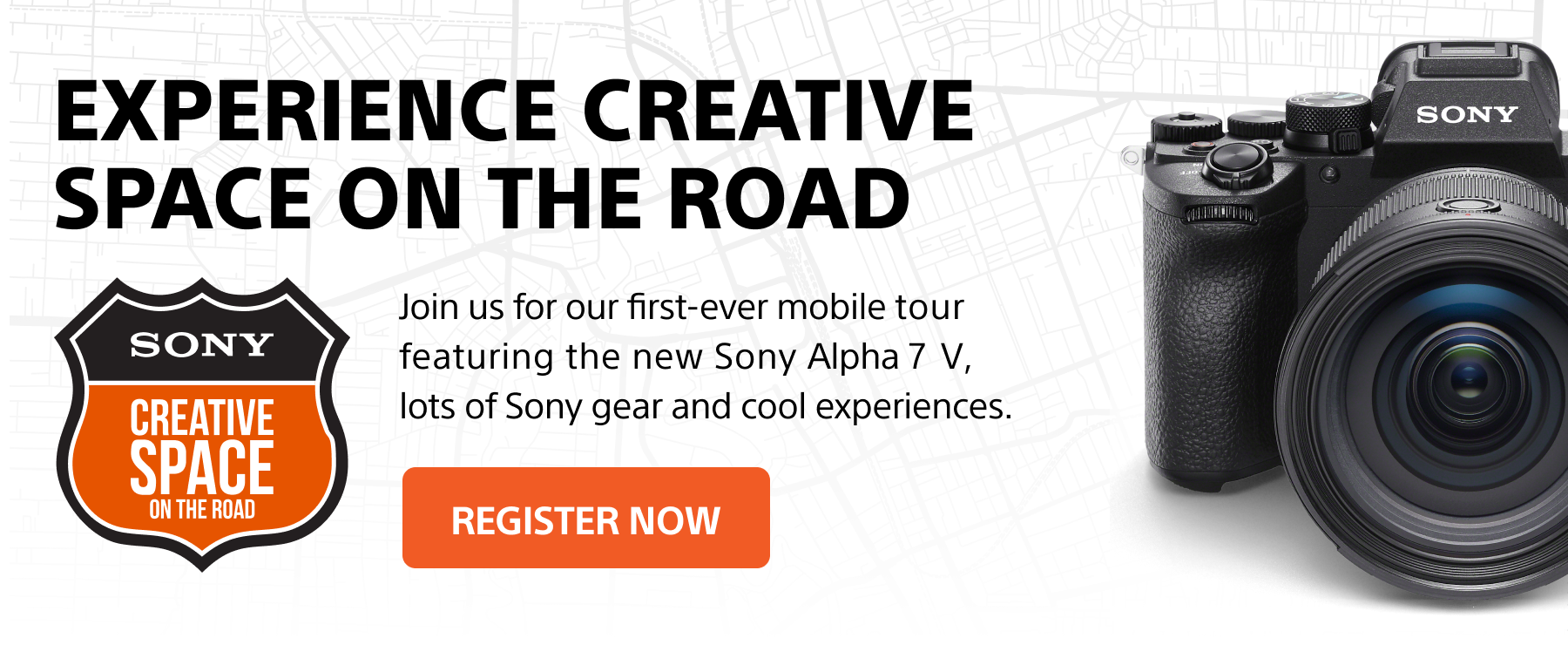Sony Artisan Robert Evans is a seasoned pro when it comes to shooting weddings. He’s photographed so many that he knows exactly which gear he wants to have on hand for each chapter of the wedding day – getting ready, family and wedding party portraits, couples session, ceremony and reception. In Part 1 we learned what he uses when the wedding parties are getting ready, and in Part 2 we saw the gear he uses to take family and wedding party portraits. Now in Part 3 we get a look inside Robert's bag at Sony Alpha gear he uses for the newlywed’s portrait session.
In the 3rd installment of our 5-part series, wedding pro and Sony Artisan Robert Evans explains how he uses 3 key primes for the newlywed portrait session.
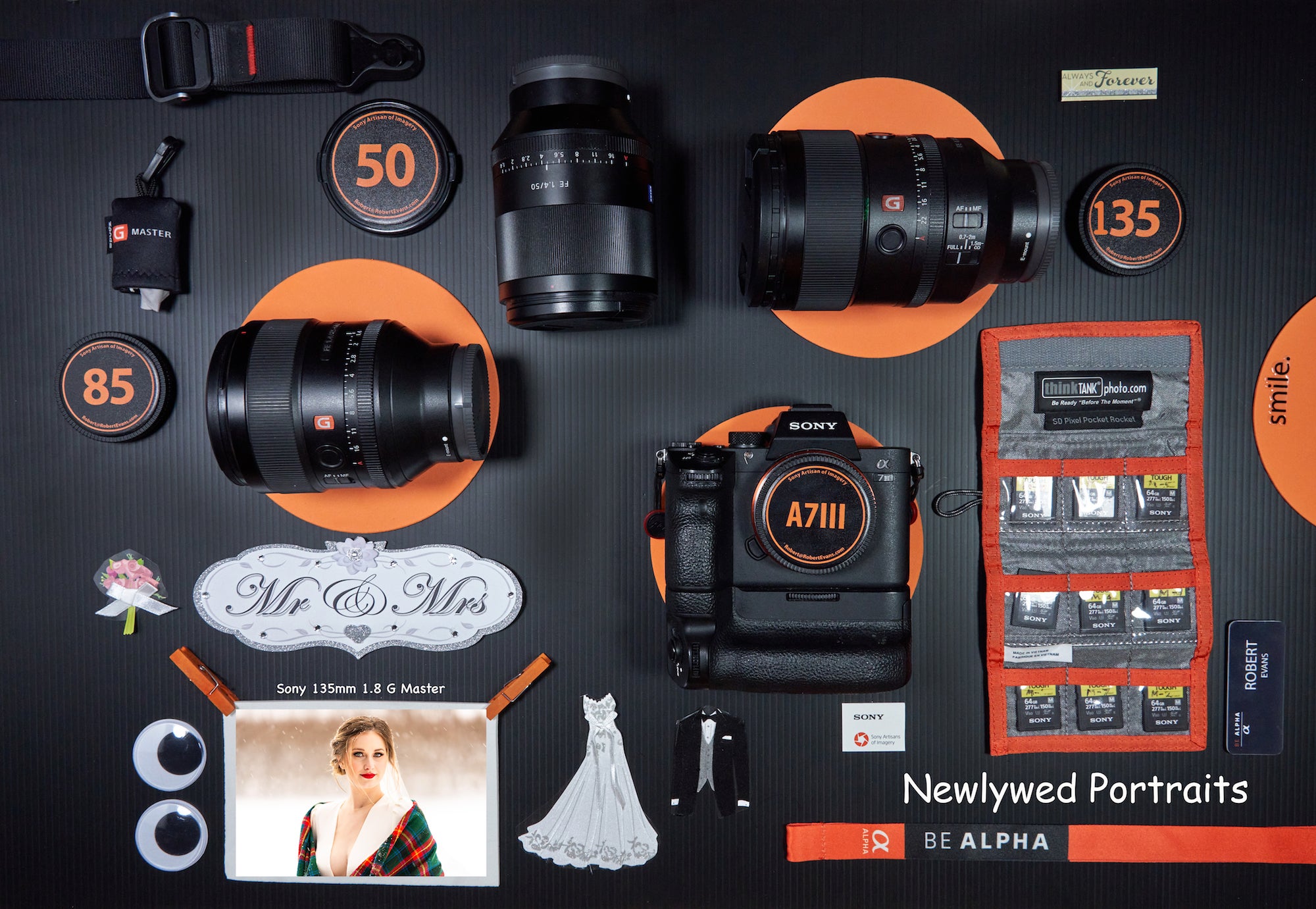
Newlywed Portraits
Cameras
I am currently shooting with the Sony α7 III and the Sony α9 II camera bodies throughout the day. I switch back and forth between these two bodies and use them for specific reasons on the wedding day, which I will share as we go along.
Lenses
When photographing my couples on their wedding day, the three lenses I go to first are the 135mm f/1.8 G Master, 85mm f/1.4 G Master and...you guessed it...the Sony 50mm f/1.4.
The 135mm f/1.8 G Master is great for shooting through the veil and close-ups of the bride or groom, but don’t be afraid to back up and use it for those longer shots that you normally might choose a smaller focal length for. It is one of the sharpest lenses I have ever used and ideal for any kind of portraiture.
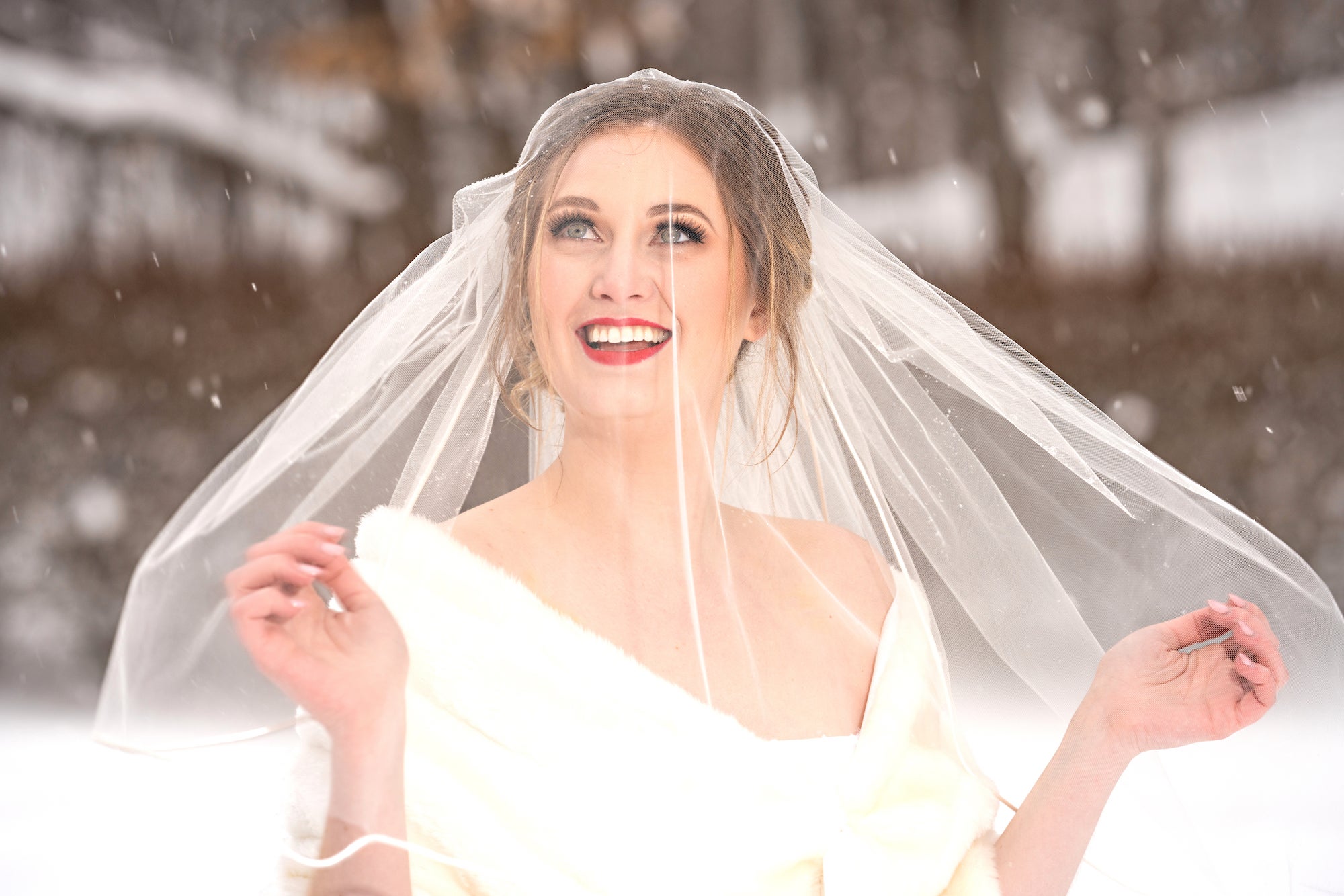
Photo by Robert Evans. Sony α7R III. Sony 135mm f/1.8 G Master. 1/125-sec., f/4, ISO 100
Prior to the release of the 135mm f/1.8 G Master, the 85mm f/1.4 G Master was my portrait lens of choice. I still love it but the 135mm tends to get used more these days. I use the 85mm f/1.4 G Master when 135mm is too tight. The Sony 85mm f/1.4 G Master even finds light when there is little to be found. I prefer to shoot this lens wide open at f/1.4 and am always amazed at how much additional light it absorbs in environments that are normally too dark. It’s great for late in the day portraiture or portraiture using minimal ambient light inside darker rooms. When you do have beautiful light the images produced by this lens are just gorgeous. It focuses fast and images are always sharp. (Note: There is also a non-G Master version. The Sony 85mm f/1.8 is a great alternative. You do lose one stop but an f/1.8 is still a wide aperture and the image quality between the two lenses is very comparable.)
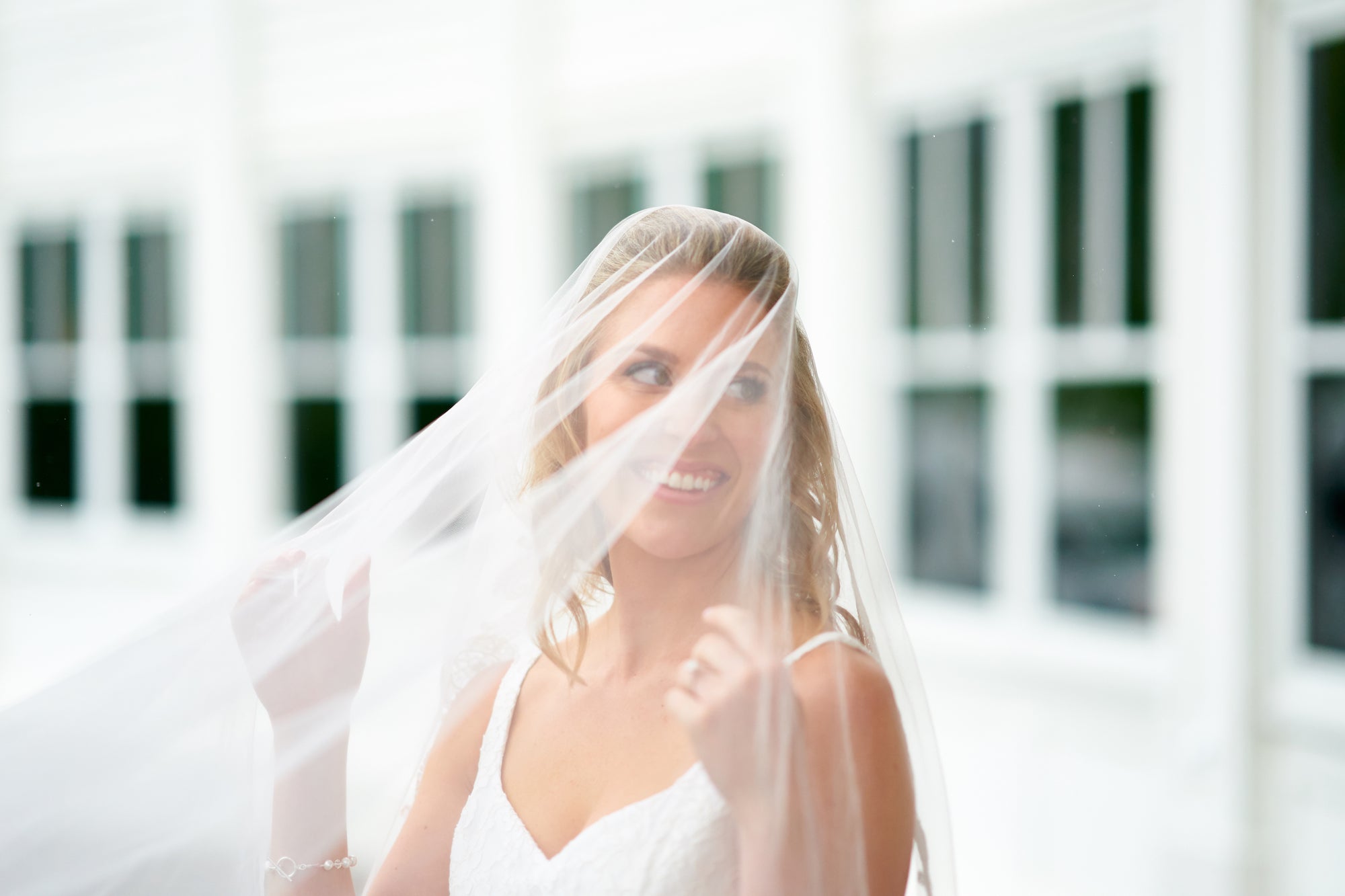
Photo by Robert Evans. Sony α7R III. Sony 85mm f/1.4 G Master. 1/4000-sec., f/1.4, ISO 800
I use the Sony 50mm f/1.4 when I shoot full-length images of my couples and want to include my couple along with the surrounding environment.
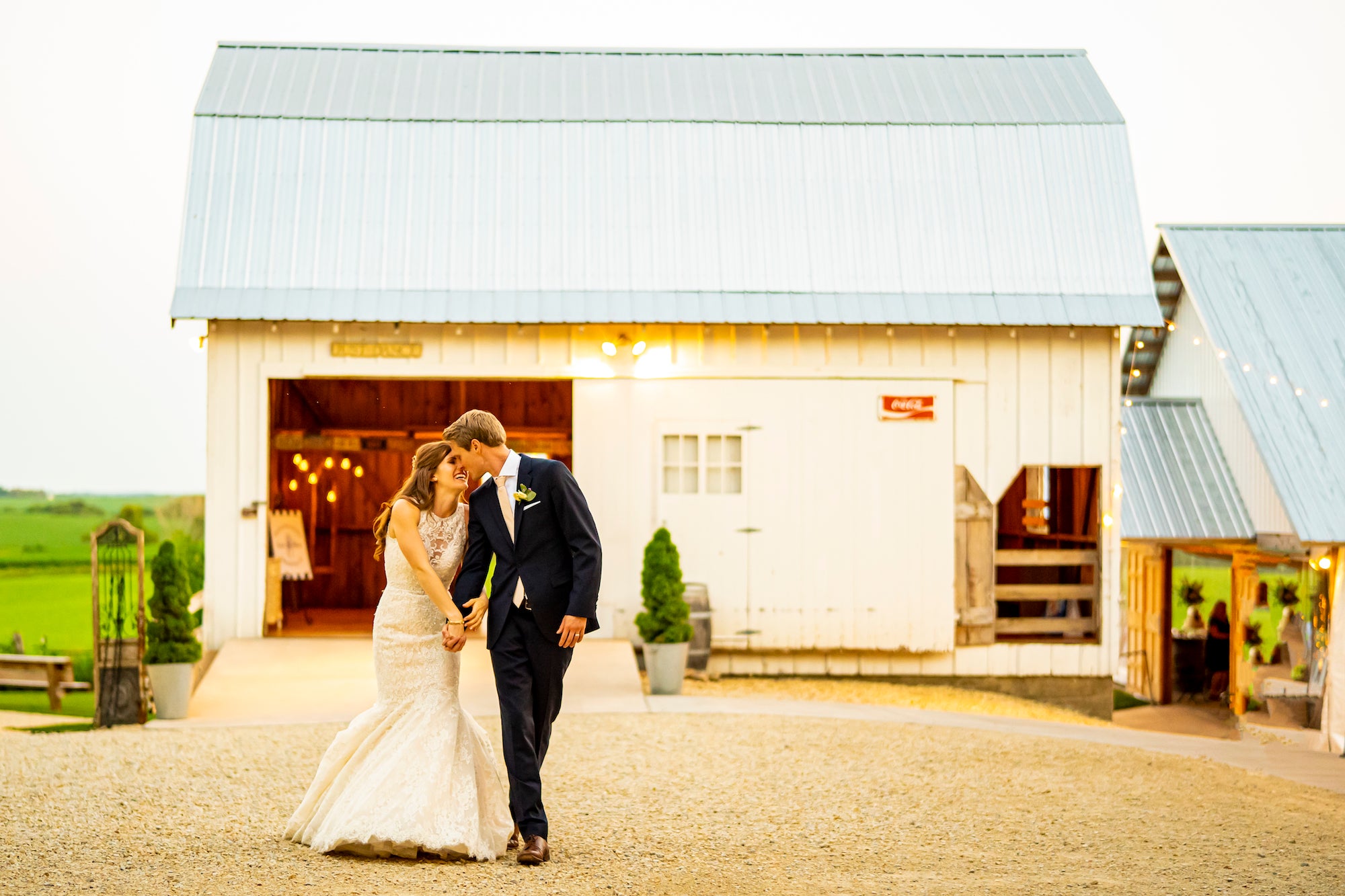
Photo by Robert Evans. Sony α7 III. Sony 50mm f/1.4. 1/320-sec., f/1.4, ISO 3200
Accessories
Finally, I wanted to give you a glimpse at the other accessories I bring along with me to a wedding. Because I find myself traveling to most of my weddings, I try to keep my gear as minimal and light as possible.
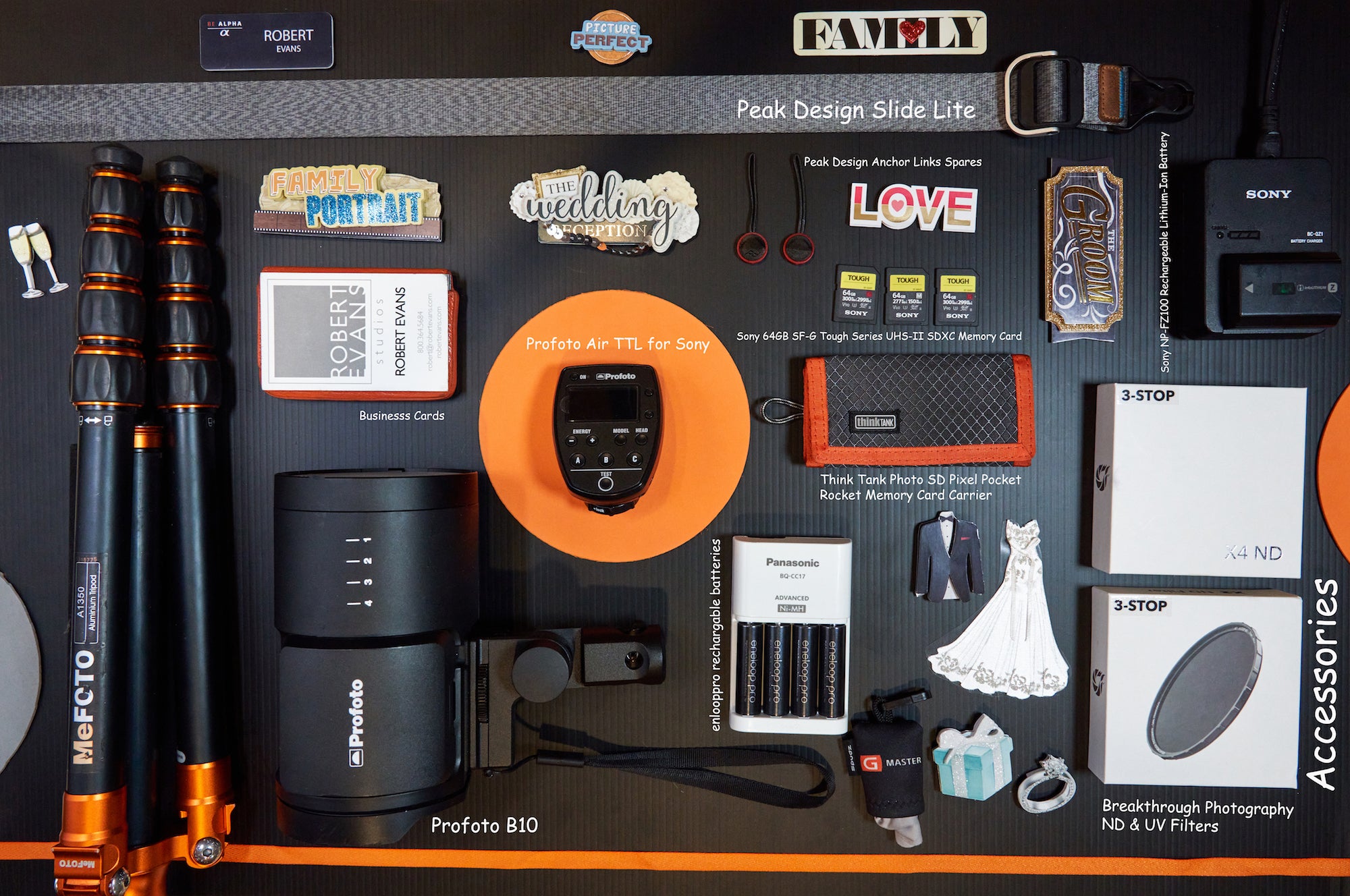
Of course I want to make sure I have the essentials, such as battery chargers for my Sony NP-FZ100 Rechargeable Batteries that fit in all my Sony Alpha bodies. I also bring plenty of SD Memory cards. I prefer the Sony TOUGH cards, SF-G TOUGH Series UHS-II SDXC Memory Card. I like the 64G capacity, and the fast write speed so I can capture 20FPS RAW when I need it along with the extra assurance that if I happen to drop a card, it will be OK.
Once I fill up a set of cards, I run one card in each slot recording RAW on both. I remove them from both slots and place them in my Think Tank memory card carry case. I keep it in the inside of my suit pocket. (Keep your cards on you at all times and at the end of the night empty your cameras and keep all the cards on your person. Should someone try to take your equipment, your clients' wedding images are safe in your pocket.)
AA Eneloop Pro Rechargeable Batteries For My Sony Flashes (I have two, one as back up): For a main flash I use and love the Profoto B10. There are two main reasons I love this flash: one, it’s small, light, and portable, and two, I can adjust the output for a tiny bit if flash at 1.0 or overpower the sun at 10.00 and anywhere in-between. As I mentioned earlier, I do not like my images to look like I have used flash in most cases, so 90 percent of the time I am using it to add just a touch of flash when shooting outside. Especially when I backlight my couples, I can add the perfect amount of flash to their faces to make it look like natural daylight – otherwise the skin tones come out looking muddy.
ND Filters: I keep several sizes of Breakthrough Photography ND filters with me as well. If I want to shoot my fast G Master lenses outside on a bright day wide open, I still can with a 3-stop ND Filter. You cannot shoot at f/1.4 or f/1.8 wide open even at ISO 50 on a bright sunny day. I like Breakthrough Photography filters because they do not change the color or cast on my images, especially when dealing with a white dress. It is also a great idea to keep UV filters on the front of your Sony lenses. We invest good money in our Sony glass, a UV filter helps protect the front element from scratches that can easily happen when working fast on the wedding day.
Tripod: I keep a MeFoto Tripod with me for the occasional motion blur exposure, or I sometimes use it for detail and décor images inside my reception rooms. It’s small, very light and easy to travel with.
Camera Straps: All my cameras are set up with Peak Design anchor links so I can quickly attach or remove any of my Peak Design camera straps. I absolutely love Peak Design camera straps – in my opinion the most innovative camera strap design on the market.
Business Cards: Finally, it’s always good business to keep business cards with you at all times. I have business cards in all my camera bags so no matter which bag I use, they are always on hand.
I think it is important to use the camera and lenses together with your favorite accessories that work best for you and make your job easy. These are my go-to choices but depending on the day I may use different lenses too. I have shared tips on how I use my Sony gear, hopefully my insight will help you improve your wedding photography and has given you some inspiration looking toward your next wedding. Check back to AlphaUniverse.com for Part 4 on the gear I use for wedding day ceremony photos.


